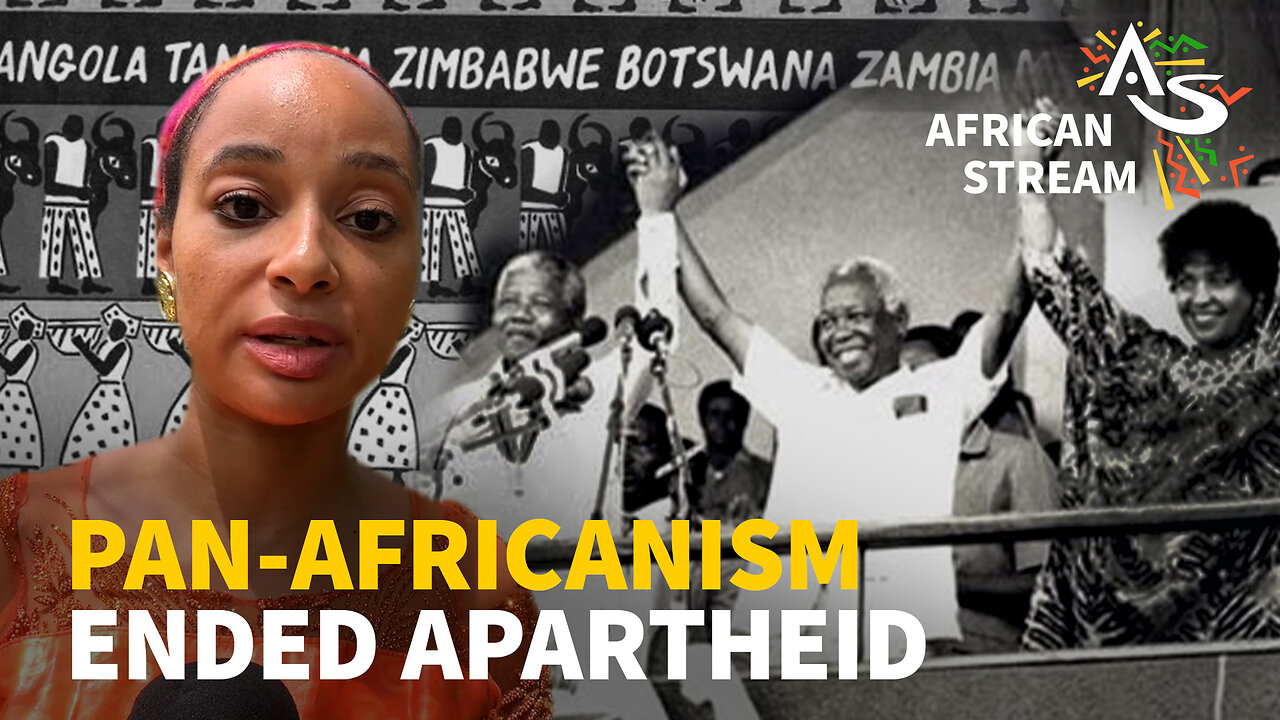Premium Only Content

PAN-AFRICANISM ENDED APARTHEID
Throughout the 20th century, courageous African men and women put their lives at stake to struggle against brutal white minority rule in South Africa.
However, the battle extended well beyond South Africa's borders, with nearly every country in Africa playing a role in shaping the struggle.
Countries such as Zambia and Tanzania hosted the leaders of liberation movements such as the African National Congress (ANC) and the South African Communist Party (SACP) for decades.
This hospitality came at a significant political and human cost as the host nations became targets of frequent military attacks by the apartheid regime. These attacks resulted in significant civilian casualties and damage to critical economic infrastructure such as rail lines and bridges.
Africans from Angola, Namibia, Zimbabwe and beyond fought and died alongside South African freedom fighters. Plus, states as far away as Algeria sent material support to the African National Congress. Even French-speaking countries like Guinea became home to exiled South African activists, such as anti-apartheid singer Miriam Makeba, who spent several years there.
Today, a section of South African society believes Nigerians, Somalis, Zimbabweans and other Africans have no place in their country. Perhaps they have forgotten how these peoples' ancestors supported South African freedom fighters' victory against one of the greatest battles of the 20th century.
While Nelson Mandela's release from prison and rise to the South African presidency was a milestone accomplishment against white minority rule, the struggle for the total liberation of South Africa continues as unequal land and wealth distribution remains stark.
If history teaches us anything, it will take Pan-African unity to bring complete freedom to South Africa.
-
 1:41
1:41
AfricanStream
2 months agoCASTRO: AFRICA’S HERO
1683 -
 11:23
11:23
Nikko Ortiz
13 hours agoArmy Tik Tok Fails Go Hard
3.2K -
 2:04:38
2:04:38
Side Scrollers Podcast
17 hours agoEveryone HATES Baseball Karen + Gaming’s Newest Virtue Signal + MORE | Side Scrollers Live
22.2K6 -
 1:13:08
1:13:08
The HotSeat
13 hours agoWhen Local Authorities Won’t Act, the Feds Will
5.83K14 -
 15:13
15:13
The Pascal Show
9 hours ago $0.02 earnedHE LIED?! Trump In Hot Water After Lewd Epstein Birthday Card Released By Oversight Committee
2.32K12 -
 LIVE
LIVE
Lofi Girl
2 years agoSynthwave Radio 🌌 - beats to chill/game to
200 watching -
 14:47
14:47
GritsGG
8 days agoRumble Tournament Dubular! Rebirth Island Custom Tournament!
106K6 -
 2:03:11
2:03:11
Inverted World Live
10 hours agoY2K 2.0 | Ep. 104
128K9 -
 2:02:53
2:02:53
Badlands Media
14 hours agoBaseless Conspiracies Ep. 149: Epstein Docs, Charlotte Stabbing, and Trump’s Next Moves
46.5K17 -
 2:56:12
2:56:12
TimcastIRL
8 hours agoTrump SLAMS Democrats Over Irina Zarutska Killing, Says WAR Over Chicago Crime | Timcast IRL
193K121